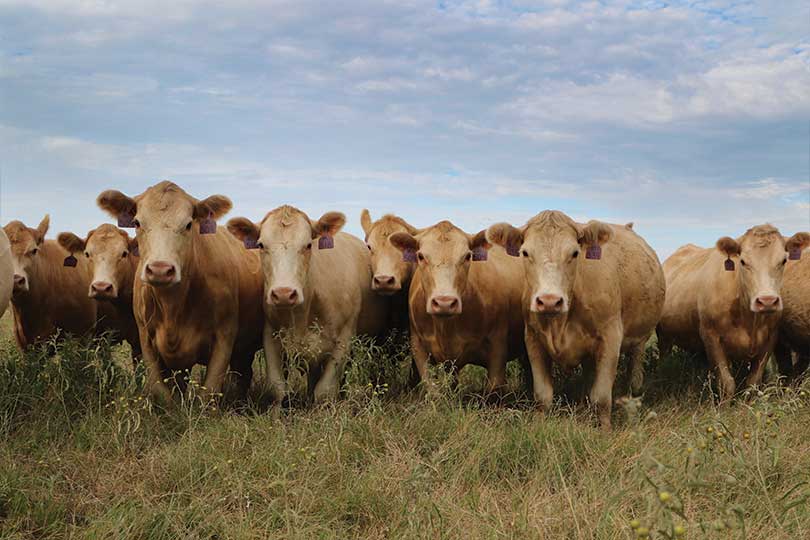By Jennifer Dorsett
Field Editor
The U.S. Department of Agriculture (USDA) Animal and Plant Health Inspection Service (APHIS) is seeking public comment on a proposal to shift to Radio Frequency Identification (RFID) ear tags as the official method of traceability for use in interstate movement of cattle.
Since 2013, APHIS has required the interstate movement of cattle and bison to identify each animal by an official ear tag, except in certain circumstances.
Currently, both metal and RFID ear tags are allowed, but the proposal would move the system to RFID-only.
“We have worked with the beef industry to figure out how we can start taking out some of the manual systems that require auction barns and veterinarians to retag, write down long numbers and those that are visible on those tags, and then be able to share those on health certificates or official documents as animals move across the United States,” Greg Ibach, USDA undersecretary for Marketing and Regulatory Programs, said on the Texas Farm Bureau Radio Network.
Texas Farm Bureau (TFB) supports the change.
“Our members have made it clear that we support a national animal identification and disease traceability system where our trading partners have asked for it,” TFB Associate Director of Commodity and Regulatory Activities Tracy Tomascik said. “Our members think RFID tags are an effective method of achieving this as long as the cost is reasonable and shared among the government, industry and individuals, and if the system is overseen by a not-for-profit entity, such as each state.”
The organization supports subsidization of the program by the federal government, because the public is the primary beneficiary.
“We’re also implementing at USDA a program where we will help producers by sharing the costs,” Ibach said. “We’re giving away a lot of RFID tags in the form of brucellosis vaccination ID tags, as well as non-program or non-vaccination tags that producers can start putting in their replacement heifers.”
TFB supports the system only if ranchers and livestock owners may apply the ear tags on their own. Tomascik said requiring veterinary application would be cost- and time-prohibitive and add unnecessary burden to the animal’s owner.
APHIS is also seeking comments on a proposed timeline for implementation of an RFID-only system. The timeline would phase in RFID tags as the only option by Jan. 1, 2023. The agency said it would “grandfather” in animals that have metal tags already in place by this date, allowing the metal tag to be the animal’s official ID through the remainder of its life.
This transition timeline would not alter existing regulations, APHIS said in a press release. The cattle and bison which must be identified will not change, nor will the option for animal health officials in shipping and receiving states to agree to accept alternate forms of identification, such as brands or tattoos in lieu of ear tags.
“As the nation’s leading cattle state, our members have kept a close eye on this issue over the years,” Tomascik said. “Farm Bureau members definitely have cattle ranchers’ best interests in mind, and that’s what led to the development of this policy position.”
Click here to submit comments. Public comments are accepted through Oct. 5.


I am totally for this kind of system as long as it does not turn into a huge expense in $ and time to the individual producer.
Totally AGAINST tagging.. USE MICRO CHIPS. THIEVES OR NARE DO WELLS CAN’T CHANGE THEM AND ARE EASILY INSERTED. LEIGHTON GATES
I don’t know about this. I’m so afraid of microchips at this point, I wouldn’t put one in anything anymore. What if the animal loses it tag? ? I’m gonna have to think about it. We eartag all our cattle and brand them. I know that many producers will use this.
How would RFID tagging apply to My herd since I have registered cattle and have a permanent number with a brand that stays with them for life. I can’t see RFID requirement applying registered stock.
The regulations are still under development so be sure to weigh in and send your comments to USDA. They need information from rancher like you to make sure the rules will fit everyone and not be over burdensome. I’ve listened to several USDA discussions about this topic over the last couple years and many people have similar situations. There will likely be special exemptions for registered seed stock cattle unless they are being sold across state lines.